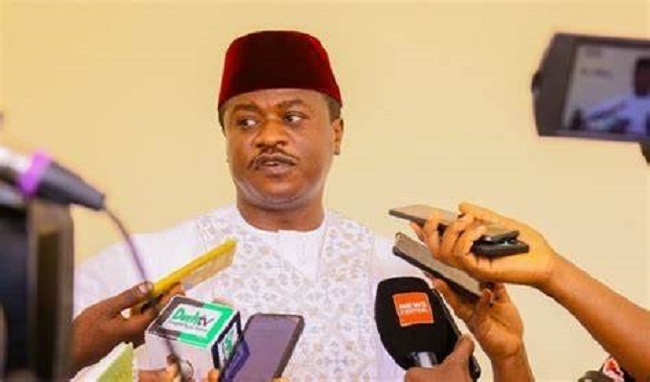International Alert, a peace building organisation, has built the capacity of civil society organsiations and Ministries, Departments and Agencies (MDAs) on conflict sensitivity and climate adaptation approaches.

The Country Director of International Alert, Dr Paul Nyulaku-Bemshima, made this known at a workshop on the Nigerian Conflict Sensitivity and Climate Adaptation Facility (NC-SAF) in Abuja.
Themed “Capacity Building and Strategy Planning Workshop on Conflict Sensitivity and Climate Adaptation Approaches”, the workshop was organised with support from Irish Aid.
Nyulaku-Bemshima said that the workshop, which was a follow-up to the launch of the NC-SAF in November 2024, brought together key stakeholders to discuss the intersections of climate change and conflict in Nigeria.
“This is the consultative learning event of NC-SAF because organisations indicated capacity building as something that we should address imminently.
“More importantly, we want this event to enable different organisations understand different perspectives around climate change, climate adaptation, mitigation, and conflict sensitivity.
“Most of the conflicts in Nigeria are resource-based and so conflict and climate change are existential issues that we must deal with all together.
“So in this workshop, key outcome for us is enhanced learning, co-creation of ideas and at the end of the day, this fits nicely into the strategy session,” he said.
According to him, the strategy session prepared stakeholders with enough knowledge and skills to make the most contributions of the priorities into the NC-SAF.
He said that, although there was existing work being done on climate change and peace building in Nigeria, organisations were still working in silos, thus the need for harmonisation.
“Coming together gives us a multiplier effect in terms of advocacy and in terms of creating the needed policy change,”he said.
Also speaking, Prof. Muhammad Baba, National Publicity Secretary, Arewa Consultative Forum, and a Professor of Sociology with interest in Environment, Societies, and Conflict, commended International Alert for the initiative.
Baba said that the convergence was very important because it raised consciousness amongst stakeholders about the impact and the intersection of climate, conflict, and other issues affecting the society.
“We know there is a great nexus between ability of people to utilise the environment and conflict.
“In a lot of places in Nigeria, in the Northwest, in the Northeast and the Central, these are daily issues that affect the lives of the people.
“I think one of the first steps towards the solution is to understand exactly what is going on,” he said.
He said that it was important to understand the dynamics between climate change and induction of conflict and how they impact on human social organisation.
“This is because if we are not careful, climate change is something that will lead to conflict and this conflict will consume everyone, especially with the rising population in Nigeria,” he said.
Baba.said that the dwindling natural resources was frightening, adding that life was declining in the rural areas and getting harder in the urban areas with accommodation, water and electricity challenges.
He said that there was the need to create awareness among Nigerians to adapt to lifestyles to mitigate climate change.
Mr Nathaniel Awuapila, President of the Society for Peace Studies and Practice (SPSP), said that the workshop was an opportunity to ensure that climate change policy was not just on paper, but implemented across the country.
“Nigerians need to acknowledge that climate change is real. There are stakeholders, very influential people that have continued to deny the impact of climate change.
“Let them see what happens annually when it rains and let them see the drought they experience sometimes.
“These are all impacts of climate change. It is real and we need to begin to take appropriate action immediately,” he said.
By Angela Atabo
